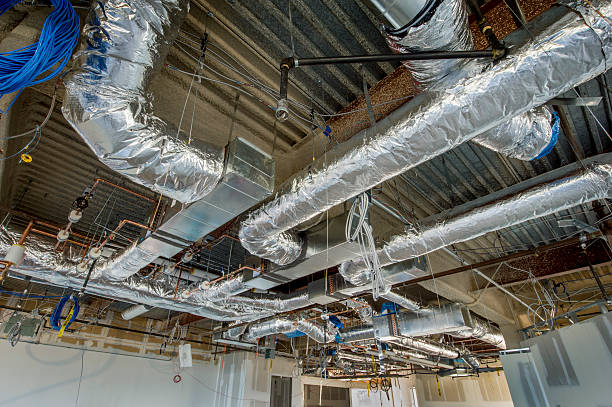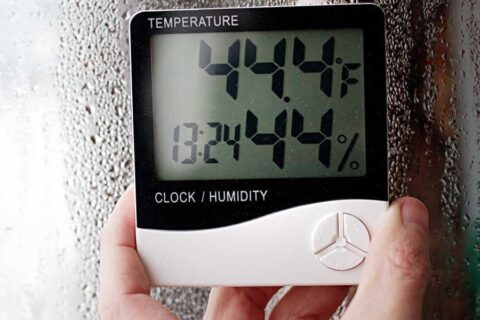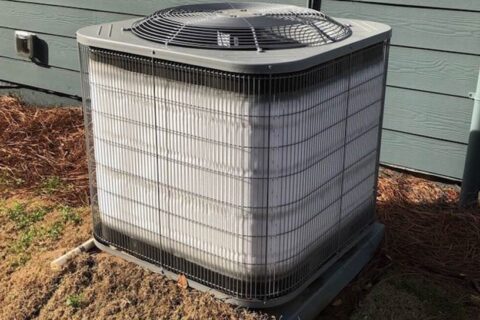How Improved Insulation Can Boost Your HVAC Efficiency
Key Takeawayss
-
Proper insulation reduces heat transfer, keeping your home cooler in summer and warmer in winter, which enhances overall energy efficiency.
-
Better insulation prevents heat or cool air from escaping, which leads to lower energy costs, less energy waste, and less strain on your HVAC system.
-
High-performance insulation promotes even temperatures throughout your home, eliminating drafts and cold spots while making your home more comfortable.
-
Quality insulation can help extend the life of HVAC systems. It lowers wear and tear, which leads to lower long-term maintenance and repair costs.
-
Investing in insulation upgrades would help you get the most out of your HVAC upgrades. By weatherizing—sealing air leaks and adding insulation in attics and exterior walls—you will save money too.
-
Improved insulation increases your home’s resale value. It further provides a more peaceful indoor environment and contributes to environmental stewardship through energy savings.
Improved insulation helps HVAC efficiency go further. Because insulation lessens heat flow, it makes a HVAC system’s job of keeping the inside warm or cool much easier. In turn, your HVAC systems don’t have to work as hard to maintain your comfort.
This results in significant energy savings and lower utility bills in the long run. Good insulation helps ensure a constant indoor temperature and humidity level. It helps eliminate extreme temperature swings and minimizes the load on HVAC units.
A properly maintained, efficient HVAC system does wonders — particularly when paired with properly installed, quality insulation. Together, they are a one-two punch of making your home more comfortable and ensuring your system lasts longer.
Investing in upgrades pays off with increased energy efficiency and improved HVAC effectiveness. This easy tweak cuts down on wear and tear on your HVAC system.
What Is Insulation and Its Role
Insulation is any material that resists the transfer of heat from the inside of your home to the outdoors. It prevents your expensive, conditioned air from escaping in the winter. In the summer, it works to keep all that external heat out.
Insulation is also about building value. Insulation is about more than increasing comfort. It’s an important element in maintaining a consistent indoor temperature – summer and winter.
Insulation keeps your home draft-free and your rooms equally warm or cool, avoiding the frustrating cycle of uneven or distracting temperatures. In winter, high-quality insulation can help get rid of cold spots by the windows.
It will help keep areas next to exterior walls from getting too hot in the summer. Insulation stops the heat flow before it can put your HVAC system through the wringer. This in turn affects overall energy use, sustainability, and even health.
How Insulation Affects Energy Efficiency
In addition to making homes more comfortable, with proper insulation energy loss is drastically reduced, directly reducing utility bills. When less heat escapes in winter or enters during summer, your HVAC system uses less energy to maintain the desired temperature.
In the long run, this can mean energy savings of 30% or more, a significant savings on monthly energy bills. In addition to the clear cost-saving benefits, insulation improves your HVAC system’s efficiency by reducing the strain of excess work.
In a well-insulated home, the cooling system can work efficiently. So, it will need to operate for shorter periods to maintain a comfortable environment on a sweltering summer day. This efficiency reduces energy costs and helps create a cleaner energy footprint.
Why Insulation Impacts HVAC Performance
Insulation plays a crucial role in enhancing your HVAC system’s ability to maintain a stable indoor temperature, thus improving overall AC efficiency. When insulation levels are inadequate, your system must work overtime, leading to increased wear-and-tear and potentially shortening the lifespan of your equipment. Additionally, effective HVAC insulation protects your home from moisture damage, such as mold, by sealing in humidity.
This not only reduces energy usage but also contributes to significant cost savings on your energy bill. By stabilizing indoor temperatures and minimizing noise levels, you create a comfortable living environment. Moreover, sealing entry points can deny pests access to your home, further enhancing your indoor climate.
The unique benefits of proper insulation make it a cornerstone of an efficient HVAC system, ensuring optimal performance and financial savings over time. Investing in the right insulation material is essential for maintaining your heating system’s effectiveness and achieving substantial energy savings.
How Insulation Improves HVAC Efficiency
1. Reducing heat transfer in your home
Insulation reduces the amount of heat gain or loss occurring in a building, allowing HVAC systems to maintain the desired level of comfort efficiently. In summer, it prevents heat from outside from coming into your home, and in winter, it prevents the heat you generate from escaping.
Typical material options for insulation are fiberglass, cellulose, and spray foam. Among these, fiberglass is the most common due to its cost-effectiveness and efficiency. The secret to keeping heat transfer at bay is insulation’s R-value, the industry standard measurement of insulation’s ability to resist heat flow.
Higher R-value materials, like rigid foam or spray foam, are most effective in severe or exceptional climates. For example, installing high-R-value insulation in an unconditioned attic can dramatically limit upward heat loss, minimizing HVAC consumption.
2. Maintaining consistent indoor temperatures
Proper insulation helps create even indoor temperatures year-round, minimizing air leaks and drafts. This results in fewer cold drafts in the winter and less excessive warming in the summertime, ensuring a more comfortable home overall.
High-quality insulation in walls, ceilings and floors keeps your environment in perfect balance, even when it’s not outside your door. By insulating crawl spaces and basements, it prevents moisture accumulation.
This prevents extreme temperature fluctuations and reduces the potential for mold development. An even indoor environment supports maximum HVAC efficiency. The systems are not forced to work as hard to compensate for rapid temperature changes.
3. Lowering HVAC system workload
When you have the right insulation, your HVAC system won’t have to work as hard to maintain comfortable indoor temperatures. By slowing heat transfer, insulation helps reduce the amount of energy needed for heating and cooling.
This directly reduces energy use, sometimes by saving consumers up to 30% on their utility bills. Less stress on the system means fewer breakdowns and easier, less frequent repairs.
This improved efficiency means your HVAC equipment will last longer and require fewer repairs. Homeowners who increase their attic insulation regularly experience improved HVAC performance with less cycling.
This increased efficiency means less energy is consumed, resulting in lower operational costs.
4. Extending HVAC system lifespan
Adding effective insulation reduces wear and tear on HVAC components, extending their overall lifespan. When the system doesn’t need to run as much or as hard, components such as compressors and fans are under less strain.
In the long run, this means less maintenance and lower costs for repair. A properly insulated home can even delay the day you need to replace your HVAC system by many years.
That delay means big financial savings for you. Reliability Consistent performance keeps your home’s heating and cooling systems from frequent and unexpected failures. Comfort is delivered without the annoying interruptions.
Financial Benefits of Better Insulation
Saving on monthly energy bills
With high-quality hvac insulation, you can dramatically reduce energy costs by making your home better equipped to maintain a stable indoor temperature year-round. According to research done by the National Institute of Building Sciences, improved insulation can lead to substantial energy savings, reducing energy use by 30% or more.
Improved insulation allows your heating and cooling systems to operate with greater ac efficiency. They will no longer need to work extra hours to compensate for heat loss during winter or heat gain in summer. A home with inadequate insulation forces the HVAC system to work harder, resulting in longer run cycles.
This inefficiency leads to increased electric or gas utility bills. However, with better insulation, homeowners can save up to $200 per year, and often more, depending on their home’s size and local climate energy costs.
Additionally, federal programs allow you to deduct 30% of the cost of new insulation, with a maximum of $1,200 per year, through 2032. Cost ranges from $0.30 to $4/sqft depending on the insulation material you choose. This incentive makes investing in effective insulation a smart financial decision with immediate savings potential.
Reducing long-term maintenance costs
By keeping indoor temperatures more stable, effective insulation lightens the load on HVAC systems. By reducing wear and tear, it results in fewer breakdowns while helping to extend the lifespan of your equipment.
More immediately, through reduced repair needs and delayed system replacements there are huge savings. For instance, with better insulation, your home will no longer require constant thermostat fiddles, saving your system from unnecessary overexertion.
Increasing home resale value
Properties with improved insulation are more appealing to buyers looking for energy-efficient, comfortable homes. Energy-efficient features such as more comfortable indoor temperatures throughout the year and reduced utility bills are attractive features to most homebuyers.
In today’s competitive real estate market, better insulation brings more than resale value. It gives your home a leg up against the competition.
Assessing Your Current Insulation
Identifying signs of poor insulation
Recognizing the signs of inadequate insulation is essential for maintaining home comfort. Drafts in certain areas or rooms that fluctuate between hot and cold often indicate poor insulation levels. For instance, if one bedroom is consistently colder during winter, this could signal insulation issues that need to be addressed.
Examine walls and windows for drafts and gaps! Rising energy bills can also be a clear indication of problems. When your HVAC system struggles to maintain a stable indoor temperature, it results in higher energy consumption and costs. Noticing clear signs like torn or compressed insulation materials in your attic can help you identify insulation effectiveness and avoid future complications.
Monitoring these indicators is crucial for ensuring optimal performance and significant cost savings in the long run.
Checking insulation in key areas
There are key spaces in your home that require insulation to function optimally. Inspect these: Heat rises, so a poorly insulated attic results in heat loss during winter. Thin or improperly insulated walls allow heat to escape.
Uninsulated floors, especially over crawl spaces, contribute to drafts. Ductwork: Leaky ducts waste energy and reduce HVAC efficiency. Making sure these areas are well insulated allows your HVAC system to work more efficiently.
Materials such as spray foam eliminate air leakage, a major cause of heat transfer, keeping the temperature comfortable.
Using professional energy audits
Hiring professionals for energy audits provides thorough results. Infrared cameras detect temperature differences, pinpointing weak spots in insulation. Experts can recommend targeted solutions, like upgrading to spray foam insulation.
Their assessments not only improve insulation but reduce HVAC strain, lowering costs.

Ways to Improve Home Insulation
Sealing Air Leaks Effectively
Air leaks are some of the biggest offenders for energy loss, so finding and correcting them is vital. You can begin by looking for drafts near windows, doors, and electrical outlets. Plugging these gaps with weatherstripping, caulk, or spray foam will seal these gaps and create a much tighter barrier.
For bigger breaches, such as those found in attics or basements, expanding foam is effective. By sealing up air leaks, you’re helping your HVAC system run much more efficiently. Not only does this save energy, but it helps maintain uniform indoor temperatures.
A tight seal means conditioned air remains in your home and outdoor air stays out, improving insulation performance.
Upgrading Attic and Wall Insulation
Attics and exterior walls are two of the main areas where heat transfer occurs. Sealing and insulating these areas can save you up to 15 percent on heating and cooling costs. Fiberglass batts provide solid insulation with fire resistance, cellulose provides soundproofing, and spray foam expands to fill in leaks.
During a remodel, material such as wet spray cellulose works well in existing wall cavities. Upgrading these areas not only makes your home more comfortable, warmer in the winter and cooler in the summer, it reduces strain on HVAC systems.
Installing Energy-Efficient Windows and Doors
Windows and doors are another major aspect of home insulation. Energy-efficient alternatives, such as double-pane windows, allow less heat transfer and help keep homes comfortable all year long. Expertly sealing around frames ensures an added layer of protection, keeping out drafts and leaks.
These upgrades in combination with other insulation improvements are making a more well-rounded, energy-saving system.
Additional Benefits of Improved Insulation
Enhancing indoor comfort and air quality
In addition to controlling temperature, improved insulation provides additional benefits. Insulation serves to seal gaps and cracks in a home and prevent air leakage. This stops allergens, dust, and outside pollutants from coming inside your home, significantly enhancing indoor air quality.
For instance, spray foam insulation creates an air-tight seal, lessening the likelihood of airborne pollutants finding their way indoors. Better humidity control is another advantage. Insulation also prevents excess moisture from seeping in, keeping your home at a more comfortable, healthy humidity level.
This balance lowers the risk of mold growth, making your home safer. A properly insulated home delivers more even temperatures throughout — no more chilly winter drafts or summer heat pockets. That even temperature and moisture control help make your home more comfortable year-round.
Minimizing environmental impact
Improving your insulation isn’t simply a way to save energy—it’s a way to drastically reduce your carbon footprint. In both cases, better insulation can greatly reduce energy use—by as much as 30%. This helps your HVAC system operate less and create less greenhouse gas emissions.
Reflective insulation, for example, plays a valuable role by minimizing heat loss during winter months. Even better, by using less energy, you’re making the choice to live more sustainably. A cleaner environment in the long run, a lower energy demand means less strain on existing power plants, resulting in a decrease in harmful emissions.
Reducing noise pollution
Effective insulation does more than just keep a home warm or cool. It keeps it quiet, too. Materials such as fiberglass or foam absorb sound waves, reducing distractions from outside noise sources.
Whether you’re dealing with traffic noise outside or noisy upstairs neighbors, improved insulation helps keep the world outside where it belongs.
Conclusion
High-quality insulation not only helps keep your home cozy and save you bonus cash on energy bills. It increases HVAC efficiency, reduces energy costs, and it helps your space become a more sustainable one. A better insulated home creates less wear and tear on your system, so it has a longer useful life. What that means It not only improves your HVAC efficiency, it helps to ensure a quieter, more consistent indoor environment, contributing to your overall comfort.
By taking simple steps such as sealing gaps around your home or upgrading your attic insulation, you’ll be able to experience the difference. Every step lays the foundation for the really efficient and cost-effective home to come. It’s a win-win measure — a great short-term investment for both increased HVAC efficiency and long-term value.
-
Be proactive with your insulation. In the long run, the payoff, in terms of energy savings and comfort, is well worth it. For further advice or more energy-saving tips, contact trusted professionals or check out community resources.
Frequently Asked Questions
What is insulation, and why is it important for HVAC systems?
By minimizing heat transfer, effective HVAC insulation helps your home stay warmer in the winter and cooler in the summer. This results in significant cost savings through improved AC efficiency. Enhanced insulation levels lead to less temperature fluctuation, ensuring optimal comfort while reducing energy consumption and utility costs.
How does better insulation improve HVAC efficiency?
The second reason is that better insulation, such as batt insulation or reflective insulation, lightens the load on your HVAC system, enhancing ac efficiency by maintaining a stable indoor temperature. This allows your system to operate less frequently, ultimately leading to significant cost savings.
How can I assess if my home’s insulation needs improvement?
Look for drafts, high energy bills, or hot and cold spots in your home. Inspect your attic, walls, and crawl spaces for areas lacking proper hvac insulation, as this can significantly impact your heating system’s performance and lead to higher energy consumption.
What are the financial benefits of upgrading insulation?
Improved insulation, such as batt insulation or reflective insulation, reduces heating and cooling expenses, potentially saving homeowners up to 20% on energy bills. This upgrade enhances HVAC efficiency and reduces wear and tear, leading to significant cost savings.
What are some cost-effective ways to improve home insulation?
Tape holes and cracks with weatherstripping or caulk to enhance insulation effectiveness. Insulate attics, exterior walls, and crawlspaces using efficient hvac insulation. Installing energy efficient windows and doors contributes to substantial energy savings and a comfortable living environment.
Are there additional benefits to improving insulation?
Yes! For one, better HVAC insulation keeps indoor spaces more comfortable, enhances air conditioning system performance, and reduces environmental impacts by lowering your carbon footprint. Plus, it boosts your home’s resale value, making it a smart long-term investment too.
Can insulation upgrades qualify for tax credits or rebates?
Despite the availability of state rebates or federal tax credits for energy-efficient home improvements like efficient HVAC insulation, we know of no state that offers such incentives. Contact your local utility company or energy provider to explore programs for optimal performance and cost savings.


